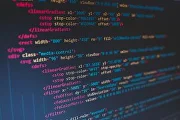Why Teach Research Skills to Primary Children?

Written by Joan Clark
Primary Specialist at Modelex, Monaco.
RESEARCH SKILLS FOR PRIMARY AGED CHILDREN
The idea of ‘research’ is perhaps more often associated with secondary and university education but in today’s world, it is important to begin teaching these skills to students during the primary years. An early start on developing research skills is the beginning of the journey to support students’ later academic development through secondary and tertiary education and, indeed, throughout life.
It may be useful to begin with clarifying what is meant by research skills. Different sources will list different specific sets of skills, but broadly speaking, these can be summarised as:
- Searching for information
- Locating information
- Extracting relevant information
- Organising information
- Evaluating and analysing information
- Using and presenting relevant information
- Discuss the question to be researched and be clear about what is being asked. This is possibly the most important thing you can do given the amount of information that an internet search will generate. Deciding on key words for a search will help to find the most relevant articles but children need to develop the ability to scan these and decide on relevance. This can only come with clarity on the subject and lots of practice!
- Plan the main headings and sub-headings to begin to help sort note-taking into sections. This will help when it comes to structure the actual written work as well as focus the search. For example, if the question/main heading is ‘What were houses like in Victorian Britain?’, sub-headings may include ‘a Victorian kitchen’, ‘the bathroom ‘, (which in turn may lead to sections on water and electricity).
- Encourage your child to read beyond the internet. Although it is often the easiest research source to access, articles can be time-consuming to read through and often not age-appropriate. Books are excellent research helpers!
- Engage your child in discussion about the advantages and disadvantages of internet research. In particular, discuss reliability, bias and also how to begin to distinguish between fact and opinion.
- Explain plagiarism to your child and avoid it!
PRIMARY TUITION IN MONACO
Modelex provides bespoke after school lessons and tuition for primary aged
children with a focus on Maths and English.
Tutoring at primary level is about more than just preparing students for
secondary school. It is a time when students can develop their interests and
passions, and plant seeds that will flourish over the next decade. It is our goal
with primary students to focus on the core skills whilst fostering students’
curiosity for themselves, their ability to learn, and the world around them.
Our first step at Modelex is to understand your child’s situation through meetings
and personalised assessment activities. We then design an educational strategy
that helps guide them to academic success.
Find out more about our primary tuition in Monaco or give us a call on +377 97 98 01 54
FIND OUT MORE ABOUT MODELEX
GET IN TOUCH WITH MODELEX TODAY




Modelex SARL
11 rue du Gabian 3 floor, Monaco 98000
Telephone +377 92 00 27 89
WhatsApp +377 97 98 01 54
info@modelex.mc
11 rue du Gabian 3 floor, Monaco 98000
Telephone +377 92 00 27 89
WhatsApp +377 97 98 01 54
info@modelex.mc
© 2022 Modelex
COMPANY
LATEST NEWS AND UPDATES
CONTACT US
OUR SERVICES


Accredited by The Monaco Department of
Education, Youth and Sport



